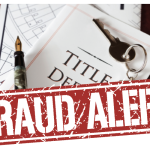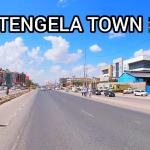Introduction
Buying land in Kenya is one of the most important investments you’ll ever make. Whether you're planning to build a home, develop rentals, or hold the land for future appreciation, the potential benefits are enormous. However, land fraud in Kenya is a serious concern. Con artists, fake agents, and unverified titles have left many buyers counting their losses.
If you’re a first-time land buyer in Kenya, this comprehensive guide will walk you through the step-by-step process to buy land safely and avoid scams. Let’s help you make a smart and secure investment.
Table of Contents
- Why Land Fraud is Common in Kenya
- Steps to Buy Land in Kenya Without Getting Scammed
- Red Flags to Watch Out For
- Legal Documents You Must Verify
- Role of a Trusted Real Estate Agent
- Common Land Scams in Kenya
- Frequently Asked Questions
- Final Advice for First-Time Buyers
1. Why Land Fraud Is Common in Kenya
Land buying in Kenya is often informal, and many transactions happen without proper legal structures. Some common reasons fraud happens include:
- Double allocation of land
- Fake or forged title deeds
- Selling land without consent of co-owners
- Dishonest brokers posing as agents or landowners
- Ignorance of land buying laws among first-time buyers
This makes it easy for fraudsters to take advantage of unsuspecting investors—especially the youth, diaspora, or people buying land for the first time.
2. Steps to Buy Land in Kenya Without Getting Scammed
Here is a step-by-step process that will protect you:
✅ Step 1: Identify the Land
Start by identifying land that suits your needs in terms of:
- Location (e.g., Kitengela, Kisaju, Isinya)
- Budget
- Accessibility to roads and amenities
- Purpose (residential, commercial, speculation)
Work with a registered real estate company like Twenty Nine Realty to view the land physically and confirm the actual location.
✅ Step 2: Conduct an Official Land Search
Request a copy of the title deed and the seller’s ID. Then, visit the Ministry of Lands (Ardhi House) or use the eCitizen portal to perform a land search.
You will get key details:
- Landowner’s legal name
- Size and location of the land
- Any charges, caveats, or disputes
🔍 If the name on the ID and title deed don't match the search results — walk away.
✅ Step 3: Do a Physical Site Visit
Never skip visiting the land in person. During your visit:
- Confirm the land boundaries
- Talk to neighbors and area locals
- Check for ongoing disputes
- Ensure there's road access, water, electricity, and drainage
Take photos and videos for your records.
✅ Step 4: Verify the Title Deed with the Local Lands Office
Go to the local Lands Registry or County Lands Office (e.g., in Kajiado for Kitengela) and cross-check:
- The title deed’s authenticity
- Whether the land is freehold or leasehold
- If it’s a mother title (not subdivided without approval)
🛑 If it’s a subdivision, ask to see the mutation forms and survey maps.
✅ Step 5: Conduct a Search at the Survey of Kenya
Visit the Survey of Kenya office with a copy of the title or deed plan number. Here, you can:
- Confirm exact land size and shape
- Verify beacons and boundaries
- Ensure the land is not on riparian, forest, or public land
✅ Step 6: Draft and Sign a Sale Agreement
Once satisfied with due diligence, engage a real estate lawyer to prepare a sale agreement. It should contain:
- Buyer and seller details
- Land location and size
- Purchase price and payment terms
- Signatures, witnesses, and official seals
Pay a deposit (usually 10%) to initiate the process — via bank transfer or escrow, never cash.
✅ Step 7: Transfer Ownership and Pay Stamp Duty
Your lawyer will:
- Fill and lodge land transfer forms (L.R. Number)
- Obtain consent to transfer (from the Land Control Board)
- Pay stamp duty (4% of purchase price for urban, 2% for rural)
- Register the transfer at the Lands Registry
You’ll then receive a new title deed in your name.
✅ Step 8: Take Possession of the Land
Once the transaction is complete:
- Install beacons or fencing
- Consider a beacon certificate or surveyor map
- Start your development or hold it for investment
3. Red Flags to Watch Out For
Be cautious if:
- You're being rushed to pay a deposit
- Seller refuses to show original title
- Title details don't match with ID or registry
- Land is sold at an unrealistically low price
- There is no sale agreement or professional lawyer involved
🛑 If something feels off — it probably is.
4. Legal Documents You Must Verify
- Original Title Deed
- Seller’s National ID & KRA PIN
- Land Search Certificate
- Mutation or subdivision maps (if any)
- Survey map & beacon certificate
- Sale Agreement
- Land Control Board consent
- Transfer forms and new title deed
Keep copies of all these documents.
5. Role of a Trusted Real Estate Agent
Buying land without a credible agent is risky. A licensed real estate firm like Twenty Nine Realty helps by:
- Verifying authenticity of land
- Organizing site visits and due diligence
- Connecting you to trusted lawyers and surveyors
- Handling paperwork and transfer process
- Ensuring smooth, safe, and legal transactions
🎯 Avoid roadside or social media "brokers" with no license or office.
6. Common Land Scams in Kenya
Here are typical traps to avoid:
⚠️ Double Sales
Selling the same land to multiple buyers, especially in fast-growing areas like Syokimau or Kitengela.
⚠️ Fake Title Deeds
Conmen print fake deeds and claim to be the owners.
⚠️ Ghost Sellers
A person impersonates the real landowner using forged documents.
⚠️ Grabbed or Public Land
Unscrupulous people sell forest, road reserve, or county-owned land.
7. Frequently Asked Questions
Q: Can I buy land while abroad?
✅ Yes, but use a trusted real estate agent and give power of attorney to a lawyer.
Q: How long does a land transaction take?
⏳ Around 30–90 days if all documents are in order.
Q: Is it safe to buy land in Kitengela, Kisaju, or Isinya?
✅ Yes, if you follow due process and work with verified agencies like Twenty Nine Realty.
Q: Can I buy land without a lawyer?
🚫 Not recommended. A lawyer protects your legal and financial interests.
8. Final Advice for First-Time Buyers
Buying land in Kenya is safe if done right. Follow due process, work with professionals, and never rush. The promise of cheap land shouldn't blind you to proper legal steps. With Kenya’s real estate growing rapidly, especially in places like Kitengela, Isinya, Syokimau, and Athi River, the best time to invest is now — just do it safely.
Looking to Buy Safe, Verified Land in Kenya?
🔚 Final Advice for First-Time Buyers
Buying land in Kenya is safe if done right. Follow the correct legal process, conduct due diligence, and work only with professionals. While land fraud is a real threat, it can be completely avoided by staying informed and partnering with trusted experts.
At Twenty Nine Realty Limited, we are experienced in all matters of land acquisition in Kenya — from site identification and due diligence to legal compliance and ownership transfer. We understand the loopholes scammers exploit, and we ensure our clients don’t fall victim to them.
Whether you are a first-time buyer, diaspora investor, or developer, we’ll guide you through a secure, transparent, and successful land buying journey.
🏡 Ready to Buy Land Without Stress?
We at Twenty Nine Realty Limited help you:
- Avoid scams and fake listings
- Conduct proper land and title searches
- Access genuine plots in Kitengela, Kisaju, Isinya, Syokimau, Athi River, and Mlolongo
- Navigate the legal process with ease
- Secure safe investments with future appreciation potential
📞 Contact us today or view verified plots on our website.
 Why You Need a Property Manager for Your Rental in Kitengela or Athi River
Why You Need a Property Manager for Your Rental in Kitengela or Athi River
 How to Buy Land in Kenya Without Getting Conned: A Guide for First-Time Buyers
How to Buy Land in Kenya Without Getting Conned: A Guide for First-Time Buyers
 Is Kitengela the Next Real Estate Hotspot? What You Need to Know in 2025
Is Kitengela the Next Real Estate Hotspot? What You Need to Know in 2025